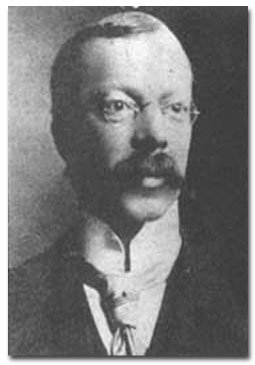|
One of the greatest
pleasures of writing is the chance to experiment. It’s fun to try one’s hand at
fresh types of story, fresh settings, perhaps even a fresh style. Of course,
it’s tempting to stick to the tried and tested (and the fact that publishers
tend to like more of the same increases the temptation) but if you want to grow
as a writer, then why not dare to be different once in a while?
So my latest novel,
Dancing for the Hangman, is a radical departure from my earlier books. It’s
not a contemporary mystery, but a historical novel. I’ve written quite a few
short historical stories in the past, but never a full-length book. And,
although it is a work of fiction, it sticks closely to the established facts of
a real life case. It’s my take on one of the classic true crime stories - that
of Dr Crippen. And in this novel, Crippen’s misadventures are recounted from his
point of view.

The centenary of Hawley
Harvey Crippen’s hanging is now just two years away. The Edwardian jury took a
mere twenty-seven minutes to decide that Crippen had murdered and
mutilated his missing wife and compel the judge to impose the death penalty.
Crippen’s wife was a failed vaudevillian whose stage name was Belle Elmore;
after her career fell apart, she earned herself the nickname of ‘the Hustler’,
as a charity fund-raiser for the Music Hall Ladies’ Guild. When she vanished
suddenly, her colleagues in the Guild turned into a collective whose nosiness
would put Miss Marple to shame, they were so determined to learn the fate of
their friend. They interrogated Crippen remorselessly about her whereabouts.
His accounts of what had
happened to her became more and more bizarre – sometimes quite hilarious, for
there is definitely an air of macabre comedy about the whole Crippen saga.
Eventually the Guild ladies reported Belle’s disappearance to Scotland Yard.
Inspector Dew went out to interrogate Crippen, and his secretary (and mistress)
Ethel Le Neve, and took such a liking to ‘the little man’ that he took him out
for lunch. But Crippen panicked and ran off to the Continent, accompanied by
Ethel disguised as a boy. Dew searched Crippen’s house and found fragments of
human flesh under their cellar. The head of the corpse was never found.

A media frenzy – to rival
anything seen nowadays – erupted, and when the fleeing couple were identified on
board a ship heading for Canada, the captain used the new Marconi telegraph to
wire his suspicions to England. Dew followed on a faster ship, and everyone in
the world knew that the game was up for Crippen – except for the couple
themselves. When Crippen was tried at the Old Bailey, the case turned into a
landmark in the history of forensic science. Crowds queued for hours to see the
skin exhibited in a soup plate. An actress sat next to the star-struck judge on
the bench.
The contrast between
Crippen’s apparent respectability and the grotesque crime seized everyone’s
imagination, including that of Arthur Conan Doyle, who attended the trial.
Crippen protested his innocence to the very end, but the evidence of pathologist
Bernard Spilsbury was damning. Winston Churchill, then Home Secretary, insisted
Crippen must hang. His lover, the enigmatic Ethel, was acquitted and lived a
long life under an assumed name – she married a man who never knew her true
identity and died on the same day that Joe Orton was murdered.
As for Crippen, he became
a celebrity criminal. Raymond Chandler said ‘you can’t help liking the guy’ and
was fascinated by the weird paradoxes of Crippen’s behaviour. This story of
illicit sex and savage violence has sourced a musical by the man who wrote ‘The
James Bond Theme’; detective novels (the best of which surely is Peter Lovesey’s
The False Inspector Dew) and true crime books, as well as countless
theories, most recently that the DNA in the cellar belonged not to Belle Elmore,
but to a man.
So why add to the
literature on the case? Well, it seems to me that many of those who have written
about the case over the years have struggled in vain to get inside the head of
the extraordinary man who is supposed to have committed the crime. Yet the novel
is an ideal form in which to explore the psychological truths about such a
complex and contradictory character as H.H. Crippen. Dancing for the Hangman
is a book where all the characters actually existed – none are invented for
the purpose of the story – but it gives a fresh slant to both familiar and
unfamiliar facts about a human drama that I find utterly enthralling.
Although Dancing for
the Hangman represents a major change for me as a writer, there are some
elements of the story that link in with my other work – not only the legal
material, but an unexpected plot twist. For running alongside the account of
Crippen’s trial is a story about a murder for which nobody was ever
convicted.
But for an explanation of
what I mean, you will have to read the book!
Advance praise for
Dancing for the Hangman:

‘An elegant, suspenseful, beautifully written
reconstruction of Dr Crippen, revealing the man as never before, and also a
thumping good novel.’
Frances Fyfield
‘An intriguing story told with intelligence,
compassion and very great skill.’
Anne Perry
‘Martin Edwards dissects not only the facts but
also the gaps and uncertainties in the historical record. This novel may bring
us as close to the truth about Crippen as we are ever likely to get.’
Andrew Taylor
Martin Edwards has found an utterly compelling
angle on the Crippen case, combining chills and poignancy in a highly original
way.’
Paul Johnston

Dancing for the Hangman
£8.99 published by Flambard Press December 2008
ISBN: 978-1906601-00-3
Further information about
the book and the Crippen case can be found at:
www.martinedwardsbooks.com
|


